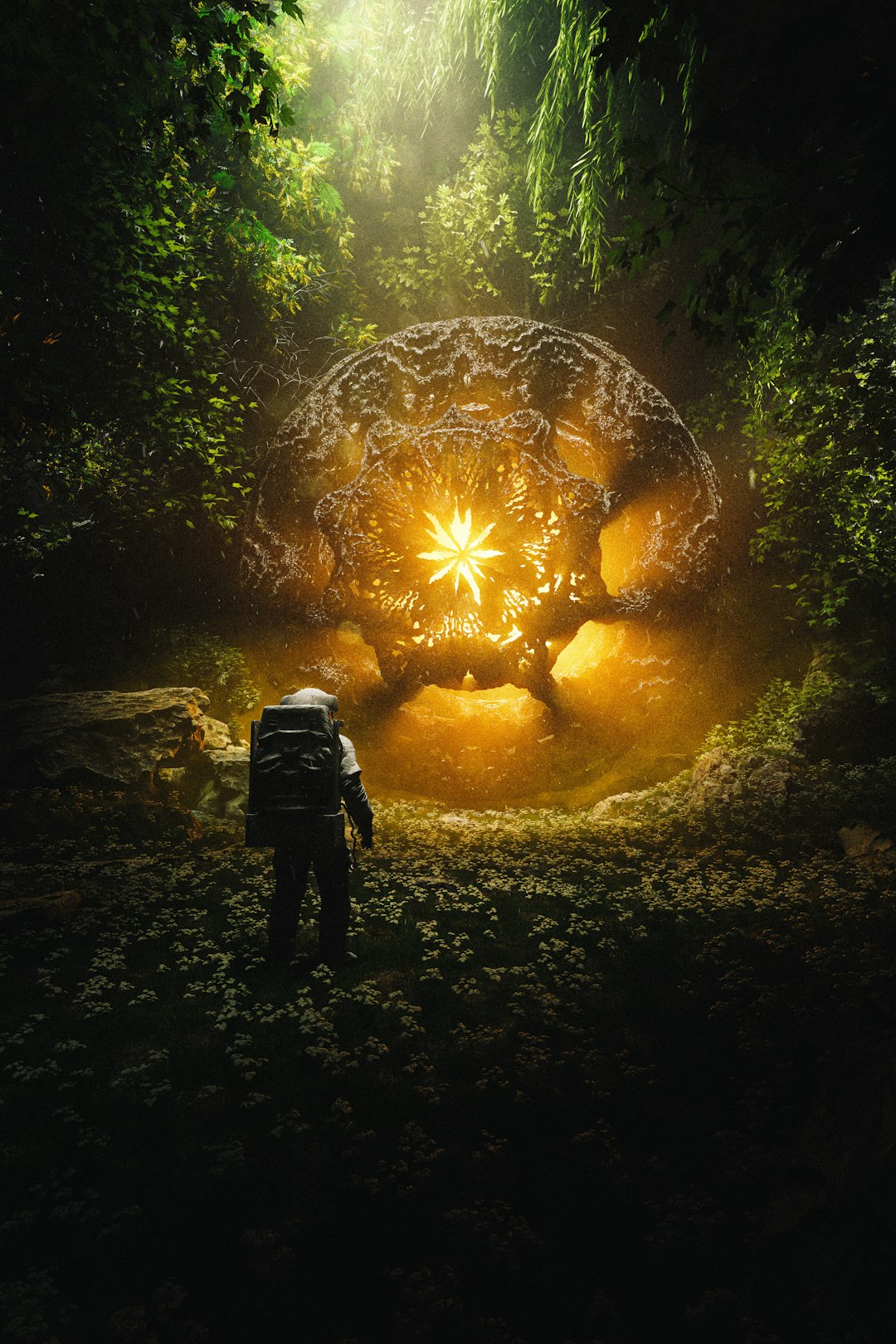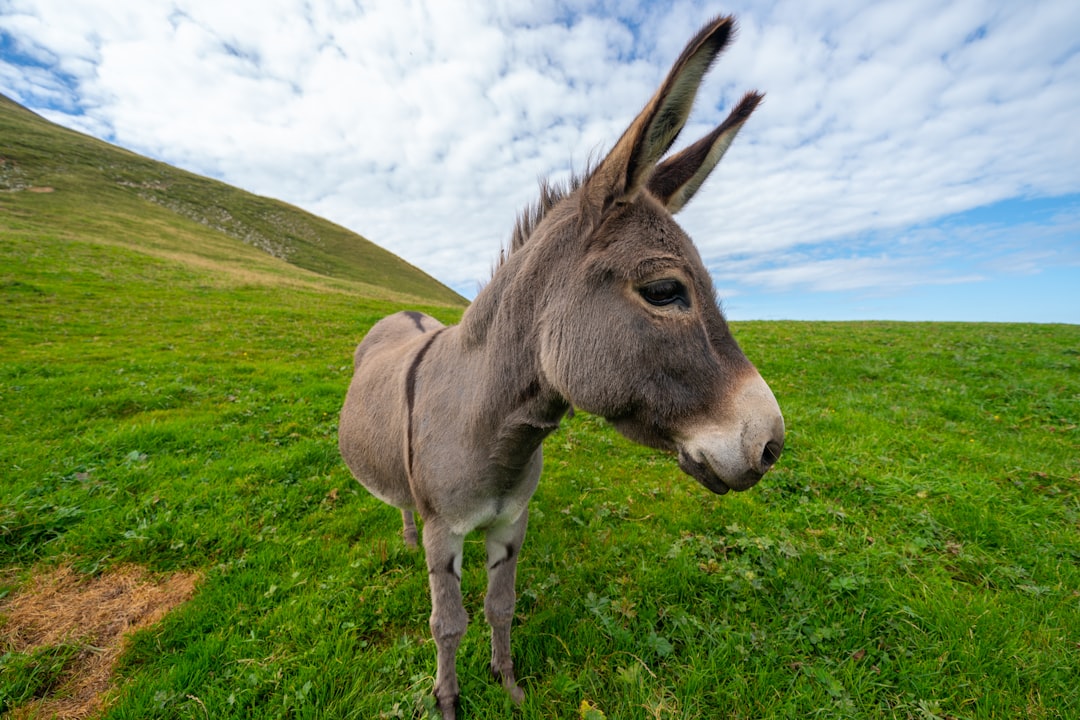The Death of the Scientific Worldview
Why Materialism won't last and how Christians can clean up the wreckage

In Out of the Silent Planet, by C S Lewis, the protagonist, Ransom, gets abducted and taken to another planet. Imagine stepping outside of a rocket ship and seeing a new world for the very first time. Everything meeting your eyes is strange and unfamiliar. Your brain desperately tries to find systems for organizing and classifying the images confronting you.
How do you organize reality?
It’s like landing at an airport. Stepping off the airplane, you encounter a sea of chaos. You are strangely drawn to the flight information board placed conveniently at intervals. Your mind tries to make sense of it, to find your next terminal, the bathrooms, and the nearest caffeine.
Whether you’re landing on a new planet or just New York, same diff, both experiences demonstrate what our minds do every day. Every day requires chaos organization. Breakfast dishes, to-do lists, staff meetings, weekend plans… we are always bringing order out of chaos.
The real question is, what organizing principles do you use? How do you do it? Why do you it? The how and the why matter.
A common trope in Lewis's novels is the arrival of characters in new worlds. Many Lewis readers miss the significance of this. We are in a hurry to find out what they will discover, but the initial reaction is telling.
How a character first reacts to a new world reveals something crucial about human nature. It quintessentially unmasks hearts.
When Weston and Devine arrive on the new planet alongside Ransom, they regard it merely as a material world in desperate need of plant classification. They saw only a wild, untouched, alien wilderness full of disparate elements, dictated by time and chance. They probably expected lots of eyeballs.
After all, this planet never experienced the industrial revolution, no one was wearing a lab coat, and Darwin hadn’t yet explained all about survival of the fittest.
Weston and Devine did not ask who the god of the wood is, but rather, what the trees are made of.
They were swanking around the place making superior valuations based on their materialistic snobbery. The ordering principles by which they classified this new world was how they saw everything—not just there—but also here.
According to Lewis, the lenses through which we see what’s unfamiliar are the lenses through which we see and judge everything.
Is, is Not What
A few hundred years ago, some guys decided that the ultimate way we perceive truth is through empirically verifiable, sensory data. This drastically changed the organizing principle of the day. In other words, if you want to understand it, lick it, or put it in a test tube.
In The Voyage of the Dawn Treader, also by Lewis, Eustace discovers that the stars in that country are celestial beings who walk among them. “In our world," said Eustace, "a star is a huge ball of flaming gas." “Even in your world,” the star replied, “that is not what a star is, but only what it is made of.”
Which bears repeating. What something is made of is not what it is. Material ingredients are not ultimate reality. We, as moderns, have disordered everything.
What frames reality? Traffic reports, weather apps, atoms and neutrons, and doctor paperwork? Our collective lenses are shaped by materialists.
The material world exists, obviously, and science, when put in its place, is super great if you’re into that. I’m not attacking science.
Put it this way: Imagine my husband invites you over for his famous chili (and if he hasn’t, you might want to drop a hint). Instead of letting you eat it, he clearly explains all the ingredients along with step-by-step assembly instructions and permits you a proper sniff. This is materialism at a glance.
What is ultimately real about chill? It’s real when we pair it with cornbread and beer, and eat it with friends who laugh, and messy kids. The ingredients are still there and the material side is crucial. After all, taste buds are non-negotiable in such cases. But the ingredients are subject to a greater reality.
Material ingredients always submit to a story.
I’m not getting sentimental, here. We are oriented around narratives; it’s how we think, it’s how we live. Chili only exists in a story and we all know it.
Even Atheistic Materialists Know it
They just lie about it, straight-up. Constantly. If a pharmaceutical company, for example, wants to sell you drugs, how do they do it? What is the one way they know will appeal to all of humanity and persuade us to buy them…?
By showing a grandpa who can’t play with his grandchildren because of joint pain: Out pops a smiling girl with even, white teeth wearing a lab coat (magic robe), who displays pills in a shiny plastic bottle (magic elixir), and then flashes a graph on the screen showing something or other about DNA (magic wand).
This is called scientific sleight-of-hand, a con (the only atheist who actually attempted to live consistently with his worldview, Neitchze, went insane). There is no ordering principle, life is chaos and then you die, they say. And here is a nice, leather-bound Encyclopedia explaining it all with a glossary. Come and listen to the tale of the fishy who grew legs and defied all odds.
Their meta-narrative won for the last few centuries which simply means they claimed the role of Town Bard. When they are honest, which is rare, materialists cannot deny that the world is full of mystery. We don't actually understand the sun or how it makes things grow. All that scientists do is make observations. As Lewis put it, “To say that migratory birds find their way by instinct is only to say that we don’t know how migratory birds find their way.”
How does all this apply to you?
Don’t be A Silly Ass

In one sense, strict Materialism has already died. We are postmodernists and the children of postmodernists, which comes with oblique nuances. It comes with the attendant host of postmodern conmen and swindlers. But the scientific worldview still lurks perniciously…
And the answer to the problem doesn’t change.
Many Christians operate on materialistic foundations without realizing it. But it will never do to borrow just a few things from Materialism, whether you know you’re doing it or not.
Dump Materialism and Embrace Narrative
Is your life an intentional, beautiful story that others want to be a part of? Or do you drink cheap coffee under fluorescent lights in church basements with ugly carpets?
On what organizing principles do we ultimately place value judgments? We don’t want to be like Bottom in A Midsomer Night’s Dream happily, blindly wearing a donkey’s head cause it “makes sense,” is “cost-effective,” “inoffensive,” “culturally relevant,” and bonus: cozy.
Where do we start? By familiarizing ourselves with good stories so much that they are in our DNA and fire out of our cells and neurons every day.
We should look at the black cloud hanging over the choppy, ocean water as Reepicheep did in The Voyage of the Dawn Treader. When Drinian asked what manner of use it would be, plowing through that blackness, Reepicheep replied, “Use? Use, Captain? If by use you mean filling our bellies or purses, I confess it would be no use at all… we did not set sail to look for things useful but to seek honor and adventure.”
We need to radically change the lenses through which we see and judge what’s real. When you land on a new world, look for the story.



This was a great read!
I got here as a recommendation from your dad's philosophy lectures.
You can check my essays out too if you want.